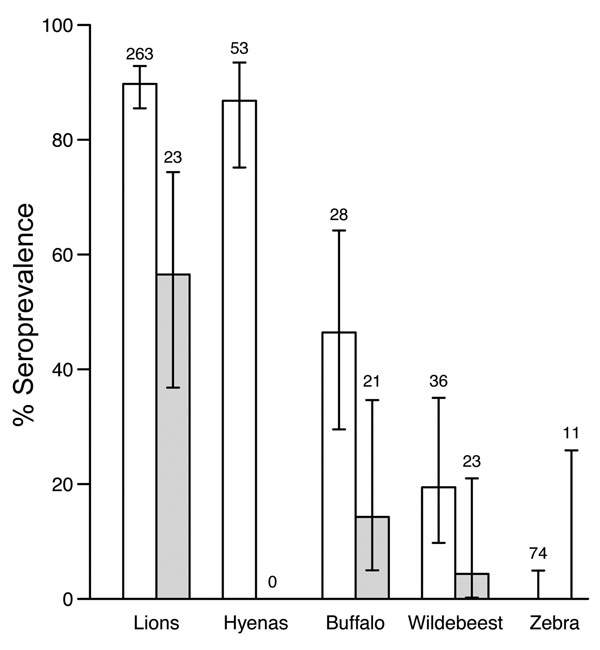Volume 17, Number 3—March 2011
Research
Serologic Surveillance of Anthrax in the Serengeti Ecosystem, Tanzania, 1996–2009
Figure 3

Figure 3. Seroprevalence of anthrax in sampled wildlife populations from Serengeti National Park (white bars) and Ngorongoro Crater (gray bars), Tanzania, 1996–2009. Error bars indicate 95% confidence intervals. Sample sizes used to calculate seroprevalence are indicated above the bars. Hyenas were not sampled in Ngorongoro Crater. Seropositive zebras were not detected; error bars indicate 95% confidence intervals based on a binomial distribution of the sample size and the seropositivity range that can be expected.
Page created: July 25, 2011
Page updated: July 25, 2011
Page reviewed: July 25, 2011
The conclusions, findings, and opinions expressed by authors contributing to this journal do not necessarily reflect the official position of the U.S. Department of Health and Human Services, the Public Health Service, the Centers for Disease Control and Prevention, or the authors' affiliated institutions. Use of trade names is for identification only and does not imply endorsement by any of the groups named above.